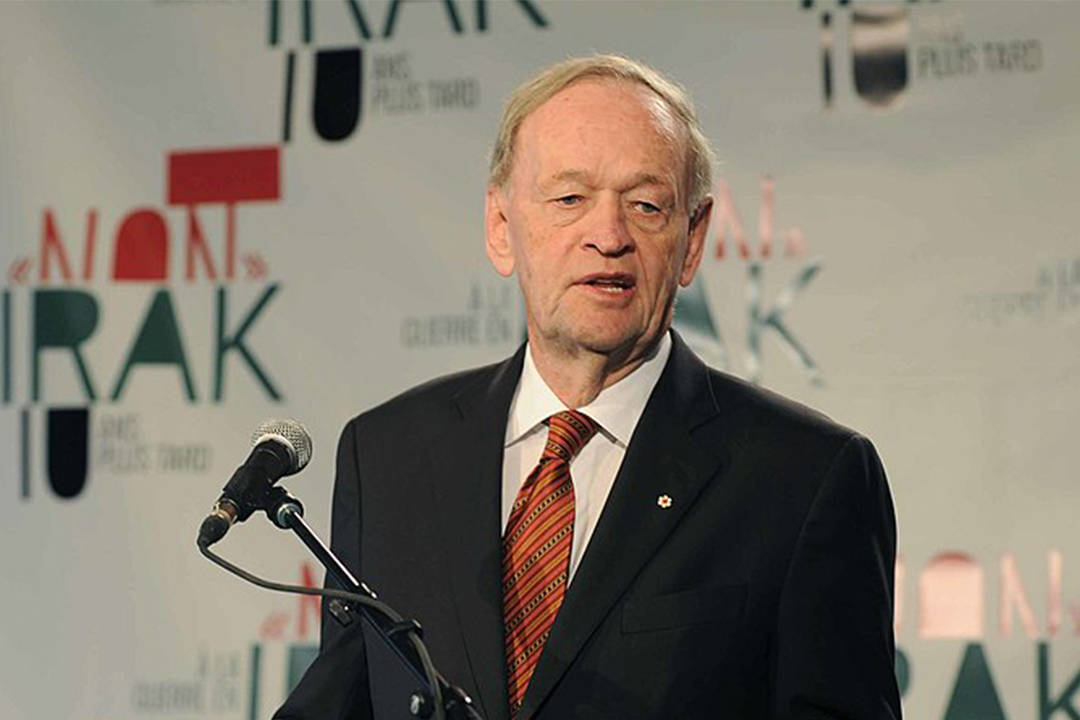This past December, declassified Australian government documents revealed that, back in 2003, the Canadian and Australian governments led by Jean Chrétien and John Howard, respectively, attempted to weaken the language in the United Nations Declaration on the Rights of Indigenous Peoples (UNDRIP). CBC reported that, in response, former chair of the Indigenous caucus at the UN, Kenneth Deer said, “I’m not surprised. Disappointed, but not surprised.”
Personally, I also see such government actions to be simply in character with centuries of similar actions.
The current Liberal government is attempting to disassociate itself from the actions of the Chrétien administration, which fought to delete references to land restitution, conflict, and cultural genocide from the language of UNDRIP. Indigenous Services Minister Patty Hajdu claimed, “We’ve taken a long leap away from those early thoughts of elected leaders of all stripes who looked to undermine and weaken Indigenous rights in this country.”
But the Chrétien government’s willingness to diminish legal protections and means of redress for Indigenous peoples are common characteristics in Canada’s history of Indigenous mistreatment — which extends up to the present administration.
In my view, the fact that the first reaction by government ministers was to downplay contemporary association with a prior Liberal government is symptomatic of a system of institutional thinking that is overly concerned with day-to-day political perceptions and a desire to shift responsibility rather than tackle and acknowledge underlying, long-term issues.
A joint statement released by Hajdu and Crown-Indigenous Relations Minister Gary Anandasangaree last month claimed the current administration wants “to help right past wrongs, be unwavering in the pursuit of the truth, and work to repair relationships so we can walk the path of reconciliation together.” But actions speak louder than words. To me, the administration’s reactions to these revelations don’t appear to be in the spirit of seeking to “right past wrongs,” but rather to avoid blame.
It could be argued that it is not the incumbent regime’s responsibility to atone for its predecessor’s misdeeds. After all, why should the political class of 2024 be dragged over the coals based on the actions of those from more than two decades ago?
But to extend that logic would be to absolve the current and any future government’s responsibility for Indigenous reconciliation. Of course, Justin Trudeau should not shoulder the personal responsibility for what Jean Chrétien’s government did any more than he might for the policies of Sir John A. MacDonald. But I believe the notion of reconciliation requires collective, historical responsibility by parties, national leaders, and the political class as a whole.
Reconciliation means different things to different people, but at its heart lies the understanding that what happened in the past matters and it must be acknowledged and apologized for. The legacy of colonial structures created and acts carried out in the past have a direct impact on the present, as the plethora of statistics on education, incarceration, health, and fatalities demonstrate. In my view, any action taken now by the current Canadian government must work to atone for the past, and learn from it to build a better future.
In their 2003 conspiring, the Australian and Canadian governments denied Indigenous peoples the chance to provide their input on policies of fundamental importance to their communities. It’s yet another example of governments doing things ‘to’ Indigenous people rather than ‘with’ them. And it’s a real shame that the Canadian government has passed on the chance to use these revelations as an opportunity to put into practice what they have preached about learning from the past to build a better future.
The most important thing to me is not necessarily that a past government was less than honest about its intentions regarding Indigenous people — quelle surprise! It was yet another chapter in the long story of Indigenous mistreatment, cultural genocide, displacement, and denial — not just denial of Indigenous nations’ right to self-determination but denial that such wrongdoing occurred, denial that communities experienced such suffering was, and denial that the suffering continues to this day.
The current government’s focus should be on recognizing and apologizing for this denial and then implementing UNDRIP, not only in strict accordance with the language and stipulations in the declaration — as is theoretically required by Canadian statute — but in spirit too. That means genuine reconciliation, treatment of First Nations, Inuit, and Métis as equal partners with self-determining autonomy. That will involve learning lessons from the past, but the current government’s latest reactions suggest to me that is not something at the forefront of its thinking.
Thomas Law is a first-year graduate student at the Munk School of Global Affairs and Public Policy. He is The Varsity’s Labour Correspondent and a senior editor of the Eurasiatique journal.



No comments to display.